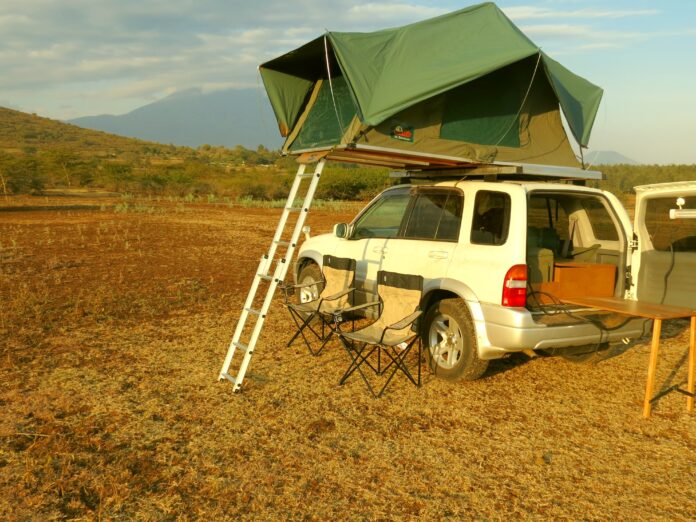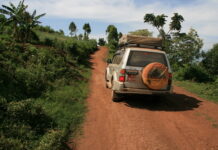Discovering Uganda on a self-drive is in my opinion a great way. Taking a break whenever you need one and stopping for as long as you wish along the way. In otherwise you time and listen to your favourite tunes on end while taking in all the sights and sounds of the unknown.
I have discovered many destinations on a self-drive and I do believe that exploring African countries is no different to European countries. But there are a few self-drive tips to consider before traveling:
Tips to know when hiring a car
- When it comes to choosing a provider to hire from, there’s plenty to consider before you sign on the agreement, especially if it’s your first time. The first thing that should be on your to-do list is to read the rental agreement, as this will ensure that you avoid any nasty surprises and that you know what you’re covered for in case you get into an accident.
- Most providers publish their terms and conditions online, but only 36% (up from 29% last year) of respondents to our survey said they read the terms and conditions before finalizing their agreement.
- Regardless of whether or not you pick through the agreement with a fine-tooth comb, it’s a good idea to inspect your vehicle before you drive off as well, because you won’t want to be paying for any damage that you didn’t cause. Taking precautions like these could help you avoid a costly and uncomfortable experience when handing back the keys.
- Do you need car hire insurance? Do I need car insurance?
Insurance is a daunting thing to tackle, particularly if you’re not sure what you should be getting. While you will need some form of insurance to get behind the wheel of your own car, insurance isn’t compulsory when you hire a vehicle. However, for case of tourist vehicle, it must be insured, it is generally recommended to ensure you won’t be left dealing with the costly aftermath if you meet with an accident.
The vehicle you take off the lot will be insured against any damage, with providers also outlining what to do if you get in an accident in their terms and conditions. But the excess could still set you back hundreds (or thousands) of dollars, which can cut your holiday short. So, should you buy hire car insurance, and should you get it from your hire car provider?
- Does my car insurance cover a hire car? Depending on which provider you have insurance with, and what policy you have, you will generally be covered behind the wheel of a hire car.
- But before you rush out the door, you should note this generally applies in the event where your primary car has been in an accident and you’ve received a hire car as a short-term replacement.
- So, while you can technically be covered under your insurance to drive a rental, you won’t be able to book a trip away and use a hire car under your insurance policy, meaning it’s best to take out insurance with your provider, or check if you’re covered under your travel insurance.
- Don’t drive too much and plan your route in detail. It’s always better to allow yourself more time to get to your destination. Not only will you have a more relaxed drive, you also are not in a rush to keep going when you just found this really beautiful picnic spot.
- It’s important to have some sense of where you are going; so, map out the sights you want to see and then plan a route that best suits your needs. Personally, I think this is one of the most important self-drive tips
- Don’t go for the cheapest car. Some African national park requires a 4×4 vehicle such as Maasai Mara in Kenya, the Serengeti in Tanzania, or Murchison Falls, Bwindi Impenetrable, Kidepo Valley National Parks in Uganda require to travel with 4X4 rooftop tent vehicle. All game drives are conducted on open 4X4 safari vehicles or Land cruisers unless you specifically request otherwise.
- Watch out for animal. A road trip through Africa is fascinating and adventurous! Elephants crossing the highways, giraffes passing the roads and baboons jumping across the gravel road. So, watch out for road signs warning of animals crossing and be even more alert during sunrise and sunset. Animals are most active during this time of the day.
- Don’t drive after dark. There are various reasons why I don’t recommend driving after the dark. For once, see points above for Animals are more active. I find it more tiring to drive in unknown territory in the dark. Depending on where you are, streetlights may not be available, making it more difficult to read street signs and finding your way around.
- So always leave in the mornings to have enough time to reach your destination. Keep in mind that in South Africa for example it gets dark quickly! It feels like someone turns off the switch; light one minute, dark the other. Be especially careful when leaving or entering villages and towns. There are often people and cattle crossing the road.
- Don’t be too adventurous. Planning your self-drive is exciting; it’s even more exciting to do it from the comfort of your sofa. How much excitement can you handle though? How comfortable will you feel in unfamiliar territory?
- Are you ok driving in remote areas or through African villages? How do you handle a break down and assistance being hours away? Don’t be too ambitious when planning your trip; rather choose a country or route you will feel comfortable throughout.



